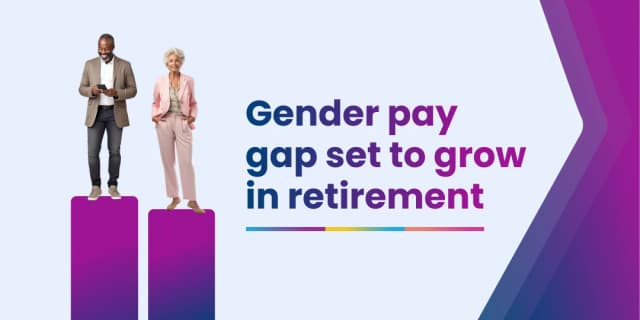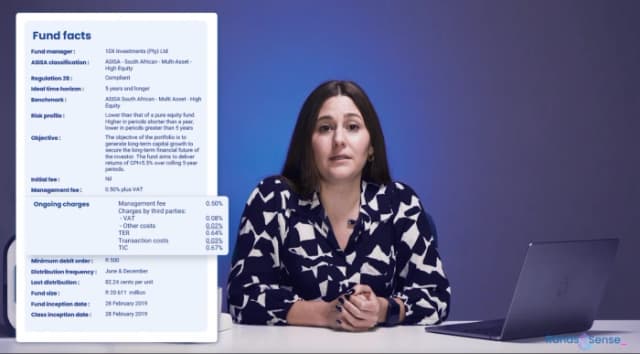How to build wealth for your children
12 November 2024
Every parent wants to leave a legacy for their children. But what should you have in place before you’re no longer around, and what are the smart ways to make sure your children are provided for while you’re still here? Let’s start with what you can do today, right now.
The power of investing early and compounding returns
If one thing is true in investing, it’s that time is your greatest asset. If you start saving for your children when they’re young, you’d be amazed at the potential positive outcomes you can create. When it comes to building wealth for your children, the most common investment products to consider are retirement annuities (RA), tax-free savings accounts (TFSA) and unit trusts (UT).
Let’s explore some long-term saving scenarios, and the benefits and drawbacks of each investment product over time*.
*Each of these scenarios assumes a 6% return after inflation, so the total displayed is what the investment would be worth in today’s money. We are also not including any increases to the monthly amounts over time where applicable, nor are we including the impact of fees.
Retirement annuity
If you contributed R1,000 per month to an RA in your child’s name from when they were born until they are 18, you would have invested R216,000, but the investment would be worth around R387,000. If your child then contributed at that same rate until they were 55, they would have contributed an additional R444,000 (together, you would have contributed R660,000), but the investment would be worth around R5,170,000 in today’s money! That is the power of compounding in action.
Of course, most of those funds are only accessible once your child is 55 (although emergency withdrawals are possible under the new two-pot legislation), but the money is protected from creditors, and you lower your income tax burden (depending on your income tax rate) from that R12,000 annual contribution. Furthermore, when your child converts that RA to living or life annuity when they retire, the growth of that investment is not subject to capital gains tax. RA’s therefore present a tax-efficient and safe way to save for retirement.
Tax-free savings account
Firstly, and most importantly, a tax-free savings account is an investment product, not a savings account like you might have as part of your bank account setup. TFSAs allow you to invest funds in any fund available to South Africans, and with a tax-free savings account (TFSA), similar compounding to that in the example above could be expected, but with a few important differences in terms of legislation.
Although, like an RA, growth in your investment is also tax-free, your child can withdraw from the TFSA at any time, and not be taxed at all on the withdrawal. This means funds are always accessible, and over the long term, the opportunity for significant capital growth is very good. But, unlike with an RA, there are legislated contribution limitations: you can only put R500k into a TFSA in total, and only R36k every year. In other words, withdrawing a large portion from their TFSA after a few years might hinder your child’s ability to capitalise on the growth of those contributions over the longer term. And they won’t be able to ‘replace’ that money again (i.e. if they put in R100k over those 5 years, and then withdrew that plus whatever the growth was, they can only put in another R400k given the R500k limit described above).
Another benefit of tax-free savings account is that they're not subject to offshore investment limitations like an RA or Pension/Provident/Preservation fund, which are capped at 45%. So, for example, you could choose an underlying fund like the Nasdaq 100 or MSCI World, which track equity indexes that are largely made up of non-South African companies.
Unit trusts
Depending on the underlying fund, similar compound growth to the example above over longer time periods could be expected. But again, unit trusts have important differences from RAs and TFSAs when it comes to legislation.
Unit trusts have no legislated contribution or offshore limits, and your child can withdraw from their unit trust account whenever they like. However, any withdrawals from the unit trust account over the tax-free limit of R40,000 per year trigger a tax event - your child will be taxed at their nominal income tax rate. Furthermore, unit trusts incur capital gains tax as well (so your child is taxed on the growth of that investment, which is not the case with a TFSA or an RA). Although they are the simplest investment product to understand, investing in and withdrawing from a unit trust should be well thought-out. Especially when taking into account the benefits of the two products described above.
Providing for your children when you are no longer around
How best to pass on wealth via your estate is a big question, a full exploration of which is beyond the scope of this article. However, one thing worth noting is that when it comes to your estate, if you have chosen to put some or all of your retirement savings into a living annuity, that money does not form part of your estate, and you can leave it to children on your passing. They have the option of taking a full or part lump sum payment (taxed at the retirement lump sum rate applicable to you, outside of the R550,000 tax-free portion that you yourself may or may not have made use of), or simply reinvesting the living annuity and taking a drawdown from it of a size and frequency of their choosing. For more information on living annuities and your broader options with your estate, speak to one of our experienced investment consultants.
What if your child emigrates?
In the case of a TFSA, any withdrawals are tax-free, so your child would convert their investments to cash and be subject to the relevant SARS rules when transferring money out of the country. Likewise for a unit trust, once any necessary tax has been paid after withdrawing from the fund.
SARS rules state that up to R1 million per individual per year can be transferred out of the country without what is known as a tax compliance status (TCS). Between R1m and R10m per year requires a TCS to be issued by SARS for the individual, which confirms that the individual has ceased to be a resident for tax purposes. Any amount over R10m requires more in-depth assessment by SARS.
When it comes to retirement savings such as a pension or provident preservation fund, or a retirement annuity, emigrants have to wait 3 years before they gain access to their retirement savings lump sums. However, emigrants can still receive monthly income or annuities during that period, provided SARS has issued a TCS.
This helps South Africans by easing the process of moving their retirement investments out of the country, while still giving citizens some leeway to return home if they change their minds within those 3 years. It also acts as a buffer to prevent those who may be leaving the country for a short time (less than 3 years) from withdrawing their entire retirement savings.
Like estate planning, emigration is a big topic. If you would like more information, simply get in touch with us.
The importance of starting early with financial literacy and education
The basics of personal financial management are not taught in any depth in schools (although they really should be). It is up to you, the parent, to make sure your child understands basic concepts like saving and budgeting. To that end, you can:
- open savings and/or investment accounts for them, and involve them in tracking the progress of their investments
- explain basic investment concepts like the power of compounding (and how high fees can compound against them), and show them how the maths works to their benefit the earlier they start and the longer they save
- encourage part-time work or entrepreneurial ventures to develop financial acumen and responsibility

It’s worth stating again that when it comes to building wealth for your kids, time is your greatest asset. You don’t need a lot of money to make sure compounding works for them over the long term, but you do need to apply your mind to the different possibilities for investing and make sure you understand what products will work for your kids. At 10X, we make it easy to open investment accounts in your child's name, and our low fees and exceptional performance means you're giving them every chance at investment success. Every parent wants to make a positive difference in their child’s life. So start now!
Related articles

How can we 10X Your Future?
Begin your journey to a secure future with 10X Investments. Explore our range of retirement products designed to help you grow your wealth and achieve financial success.

